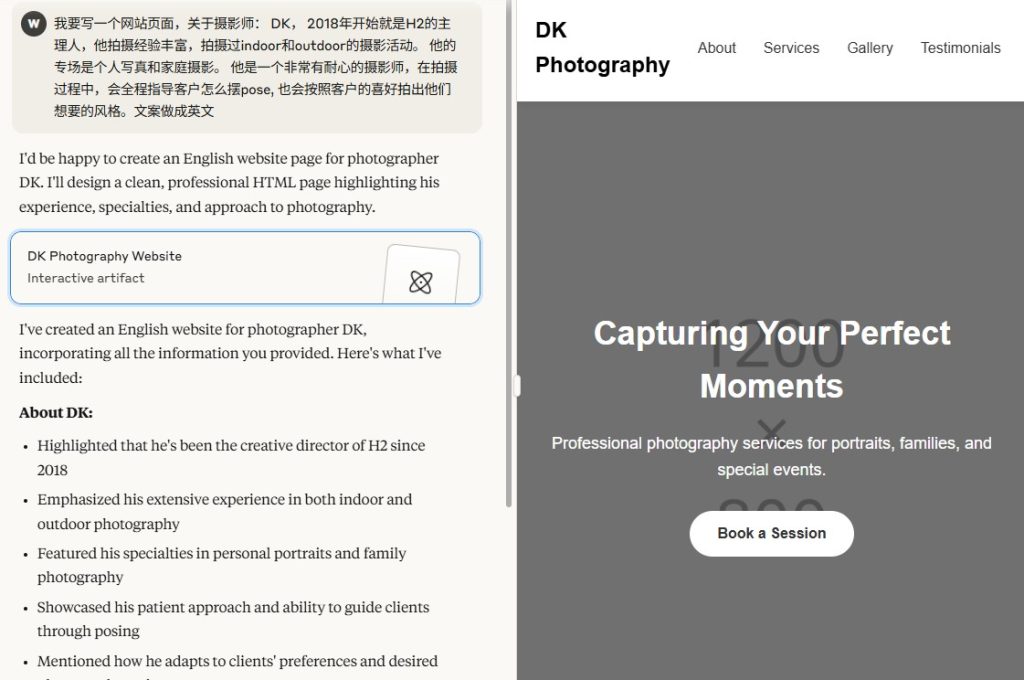Pay-per-click (PPC) advertising has become an indispensable tool for businesses looking to thrive in the digital age. In a dynamic and competitive market like Singapore, where companies are vying for the attention of a tech-savvy audience, PPC advertising offers a powerful way to connect with potential customers. This blog post will delve into the strategies and tips for maximising ROI in Singapore’s fiercely competitive PPC landscape.
Understanding the Singapore PPC Landscape
Singapore boasts one of the highest internet penetration rates in the world, with over 84% of its population actively engaged online. This presents a vast potential customer base for businesses, but it also means fierce competition for ad placements. Major players in industries like finance, e-commerce, and technology invest heavily in PPC campaigns to maintain a competitive edge.
To thrive in this environment, it’s crucial to have a well-thought-out PPC strategy that combines creativity, data-driven insights, and constant optimisation.
PPC Strategies You Should Consider Implementing
1. Keyword Research is Key
Keyword research is the foundation of any successful PPC campaign. Start by identifying relevant keywords and phrases that your target audience is likely to use when searching for your products or services. In Singapore, it’s essential to consider language preferences, as the population is multilingual. Conduct keyword research in English, Mandarin, Malay, and other relevant languages to ensure you capture a diverse audience.
Use keyword research tools like Google Keyword Planner, SEMrush, or Ahrefs to identify high-traffic keywords and long-tail variations. Prioritise keywords with high search volume, low competition, and strong relevance to your offerings.
2. Leverage Localised Ad Campaigns
Singapore’s cultural diversity requires a nuanced approach to PPC advertising. Create ad campaigns tailored to specific segments of the population. Consider the following aspects:
- Language: Craft ad copies in the language preferred by your target audience. For example, if you’re targeting the Chinese-speaking population, create ads in Mandarin.
- Cultural Sensitivity: Be aware of cultural sensitivities and customs in Singapore. Ensure that your ad content is respectful and avoids any potentially offensive elements.
- Local Events and Holidays: Incorporate local events and holidays into your ad campaigns. Promotions or offers tied to Singaporean festivals can resonate well with the audience.
3. Quality Score Matters
Google’s Quality Score is a metric that evaluates the relevance and quality of your ads, keywords, and landing pages. It plays a significant role in determining your ad rank and CPC. To improve your Quality Score:
- Craft compelling ad copies that closely match users’ search intent.
- Ensure your landing pages provide a seamless and relevant user experience.
- Use ad extensions to provide additional information and value to users.
A higher Quality Score not only reduces your CPC but also helps your ads appear in more prominent positions on the search engine results page (SERP).
4. Ad Extensions and Ad Formats
Ad extensions enhance your ad’s visibility and provide more information to users. In Singapore’s competitive market, using ad extensions can make your ads stand out. Some useful ad extensions include:
- Sitelink Extensions: Direct users to specific pages on your website, such as product categories or promotions.
- Callout Extensions: Highlight unique selling points and benefits.
- Location Extensions: Display your business’s physical address and a clickable map.
- Review Extensions: Showcase positive reviews and ratings.
- Price Extensions: Show product or service prices directly in the ad.
Experiment with various ad formats, such as responsive search ads and video ads, to diversify your PPC strategy and capture different types of user engagement.
5. Mobile Optimization is a Must
Given the prevalence of mobile usage in Singapore, mobile optimisation is crucial. Ensure that your landing pages are mobile-responsive, meaning they adapt to different screen sizes and load quickly. Optimise ad copies for mobile devices by including compelling CTAs and concise messaging that’s easy to read on smaller screens.
Consider using mobile-specific ad extensions, such as click-to-call and app download buttons, to facilitate mobile users’ actions and conversions.
6. Competitor Analysis
Understanding your competitors’ PPC strategies can provide valuable insights into what works in your industry. Here’s how to conduct effective competitor analysis:
- Identify Competitors: Use tools like SEMrush or SpyFu to identify your top competitors in the Singaporean market.
- Analyse Ad Copies: Study your competitors’ ad copies. What keywords are they targeting? What messaging and offers are they using?
- Budget and Bidding: Try to estimate their ad spend and bidding strategies. Are they investing more in certain keywords or times of the day?
- Ad Schedule: Determine when your competitors are running their ads. This can help you schedule your own ads strategically.
Analysing your competitors can help you identify gaps in the market or opportunities to differentiate your offerings.
7. A/B Testing
A/B testing, also known as split testing, is an ongoing process of experimenting with different elements of your PPC campaigns to optimise performance. Here are some elements to test:
- Ad Copies: Test variations of ad headlines, descriptions, and CTAs to determine which combinations generate the highest click-through rates and conversions.
- Landing Pages: Experiment with different landing page designs, layouts, and content to see which ones result in better conversion rates.
- Bidding Strategies: Test different bidding strategies, such as manual CPC, automated bidding, and target ROAS, to find the most cost-effective approach.
- Keywords: Continuously review and refine your keyword list based on performance data. Pause or bid higher on keywords that drive conversions.
- Ad Extensions: Try different combinations of ad extensions to see which ones have the greatest impact on ad visibility and engagement.
By systematically testing and optimising these elements, you can incrementally improve the ROI of your PPC campaigns.
8. Budget Management
Your PPC budget should align with your business goals and the competitiveness of your industry. Here’s how to manage your budget effectively:
- Set Clear Goals: Determine what you want to achieve with your PPC campaigns, whether it’s brand awareness, lead generation, or direct sales.
- Allocate Budgets Wisely: Divide your budget among campaigns and ad groups based on their performance and importance to your goals.
- Monitor and Adjust: Keep a close eye on your spending and adjust your budget allocation as needed. Shift funds to high-performing campaigns and reallocate resources away from underperforming ones.
- Bid Strategically: Adjust your keyword bids based on performance. Allocate higher bids to keywords that drive conversions within your target cost per conversion.
9. Conversion Tracking
Conversion tracking is essential for measuring the effectiveness of your PPC campaigns and understanding which efforts are driving results. Here’s how to implement conversion tracking effectively:
- Set Up Conversion Actions: Define what actions on your website constitute a conversion. This could include form submissions, product purchases, or sign-ups.
- Install Tracking Codes: Place conversion tracking codes on relevant pages of your website to track when users complete the desired actions.
- Use Google Analytics: Integrate Google Analytics with your PPC campaigns to gain deeper insights into user behaviour and the customer journey.
- Analyse and Optimise: Regularly review your conversion data to identify trends and opportunities for improvement. Use this information to refine your PPC strategy.
10. Remarketing
Remarketing, also known as retargeting, involves targeting users who have previously visited your website but did not convert. Here’s how to make the most of remarketing:
- Segment Your Audience: Create specific remarketing lists based on user behaviour. For example, you can target users who abandoned their shopping carts or those who visited specific product pages.
- Tailor Your Messaging: Craft personalised ad copies that remind users of their previous interactions with your site and offer incentives to return and complete their actions.
- Frequency Capping: Avoid bombarding users with too many ads. Set frequency caps to limit the number of times an ad is shown to the same user.
- Optimise Landing Pages: Ensure that the landing pages you direct remarketing traffic to address the concerns or objections that led users to initially leave your site.
Conclusion
Maximising ROI in Singapore’s competitive PPC market requires a combination of careful planning, data-driven decision-making, and ongoing optimisation. By conducting thorough keyword research, creating localised campaigns, maintaining high-quality ad scores, leveraging ad extensions and formats, optimising for mobile, and more, you can position your business for success in the dynamic Singaporean digital landscape. Keep in mind that PPC advertising is an evolving field, and staying up-to-date with industry trends and consumer behaviour is crucial to maintaining a competitive edge.
Also, when operating in a cutthroat PPC market like Singapore, partnering with a digital marketing agency can be a strategic move. Their expertise, resources, and commitment to optimisation can help you not only navigate the challenges but also capitalise on the abundant opportunities that digital advertising presents. With the right agency by your side, you can maximise your ROI and achieve long-term success in Singapore’s dynamic digital landscape.








